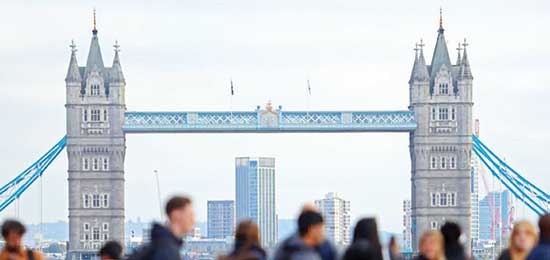Blitz Bureau
THE growth in wages in Britain slowed but remains at levels that would normally be too high for the Bank of England (BOE) to keep inflation at its 2 per cent target, adding to doubt about the possibility of an interest rate cut in two weeks’ time. Earnings excluding bonuses – a key gauge of inflation pressure for the BoE – grew by 5.7 per cent in the three months to the end of May compared with a year earlier, official data showed.
Salary increase
That represented the slowest growth in core pay since the summer of 2022 when employers scrambled to increase salaries to hire and retain staff amid a shortage of candidates. Sterling and British interest rates futures were little changed after the data was published.
“A modest slowing in pay growth offers some good news for those looking for a rate cut in August,” Yael Selfin, Chief Economist at KPMG UK, said. “But with annual pay growth excluding bonuses at 5.7 per cent, the Bank of England may be unwilling to risk an August cut in rates before the labour market has cooled sufficiently.”
In the three months to April, regular pay had risen by an annual 6.0 per cent and total earnings were up by 5.9 per cent. The BoE is due to make its next rates announcement on Aug. The Office for National Statistics (ONS) also said that it was delaying the switch to a new version of its Labour Force Survey which had been due to take place in September. The new version of the survey is designed to counter falling response rates for the current survey.
Online survey
The ONS said the Transformed Labour Force Survey (TLFS) was attracting more respondents but showed a bias towards older people who were more likely to complete the online survey. Partial responses were another problem, it added. “While we further develop the TLFS, we will continue to use the LFS as our lead measure of the labour market,” the ONS said, adding that it would report back in early 2025 on its progress.
















